Indigenous Governance Database
Civics
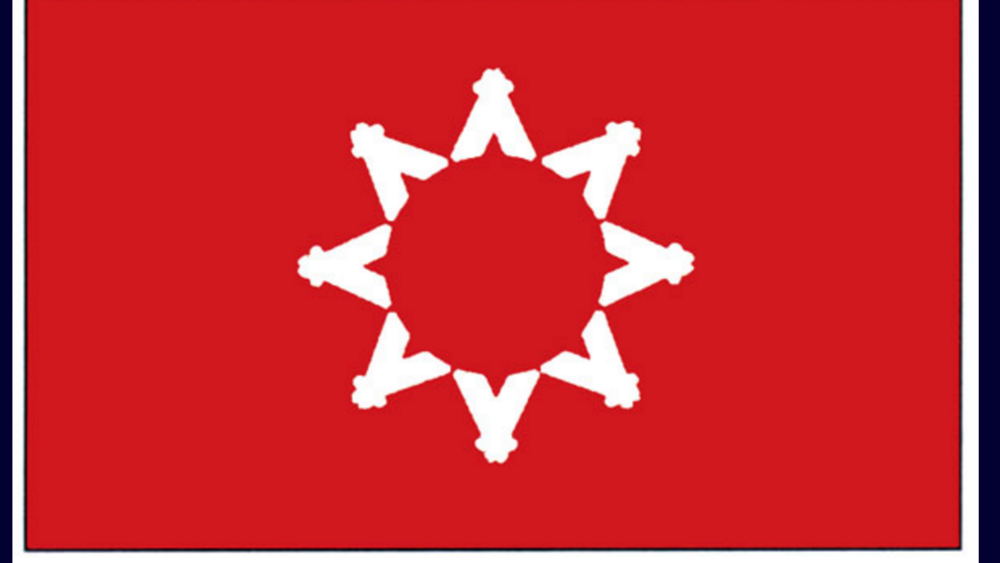
Teach youth about forms of government
Why aren’t the schools teaching about the IRA form of government? Why aren’t they teaching about the traditional tiospaye form of government? The disenchantment and what appears to be apathy or even seditiousness toward the Indian Reorganization Act system of government have become “normal” among…
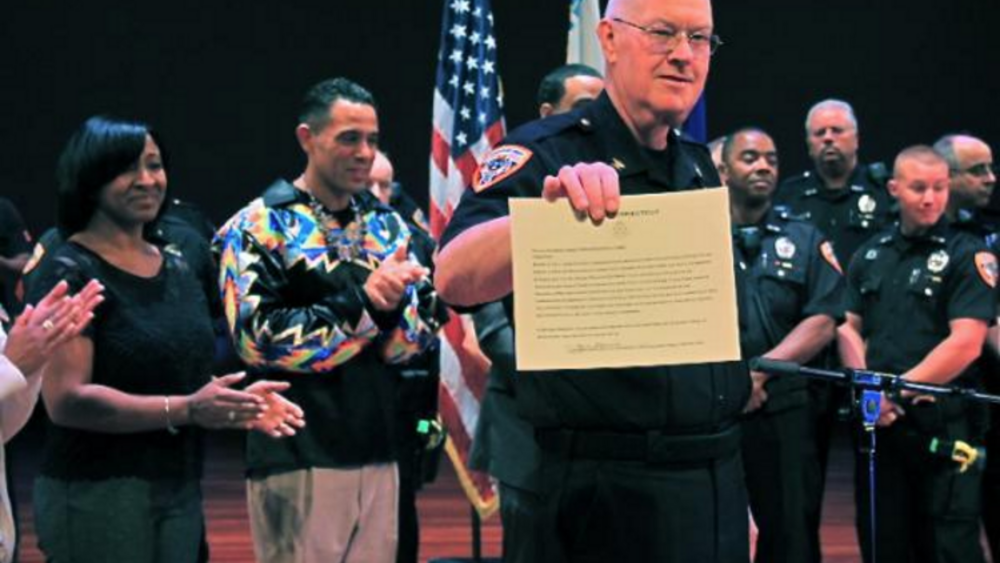
Police Protection in CT Increases: Tribes Can Now Arrest Non-Natives
On Friday, August 1, 27 members of the Mashantucket Pequot Tribal Police received the power to arrest non-Natives on tribal land. “Up until now they could only hold and detain non-tribal members until the state police could come and make the arrest,” William Satti, director of public affairs for…
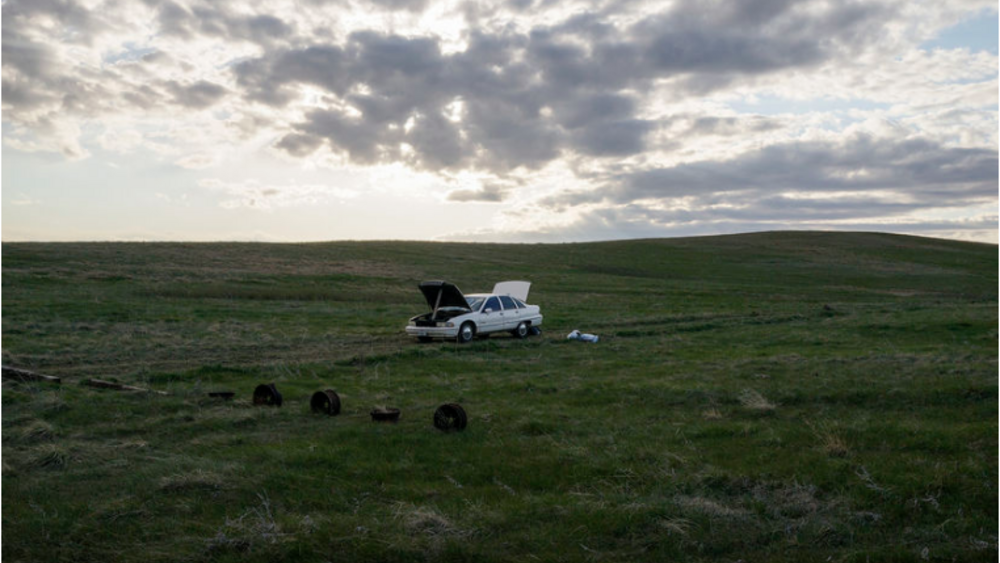
Glimmers of hope on Pine Ridge Indian Reservation
The Pine Ridge Indian Reservation has become emblematic of rural poverty, neglect and the plight of struggling American Indians. But across the reservation, there are glimmers of hope and resistance against the monumental challenges the Lakota people face. In the case of Alice Phelps and the…
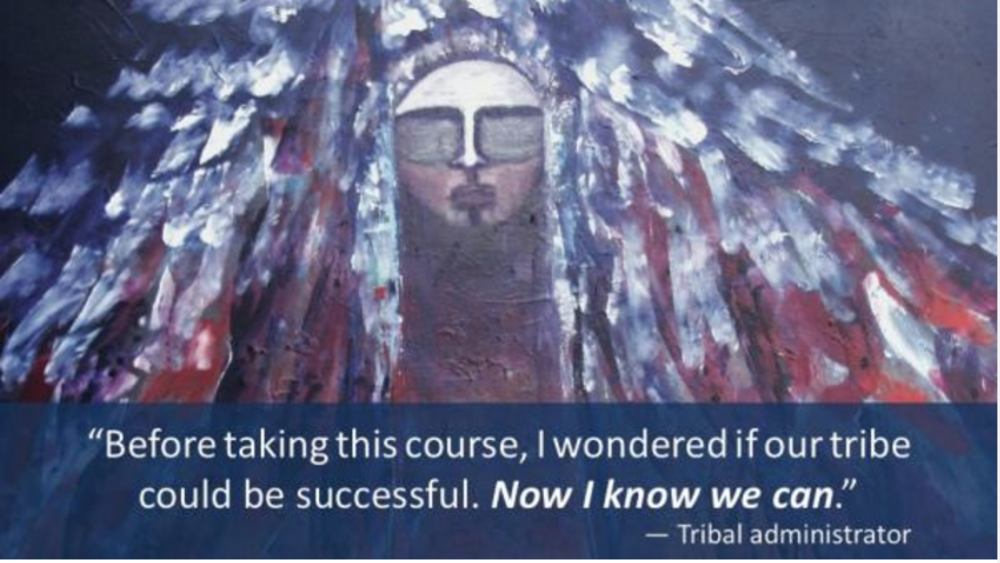
Rebuilding Native Nations Course: What I Learned
I had the opportunity to take the Rebuilding Native Nations Strategies for Governance and Development course offered by the Native Nations Institute at the University of Arizona. I was lucky enough to take the online course at no charge through an article I saw on ICTMN. The course costs $75 as of…
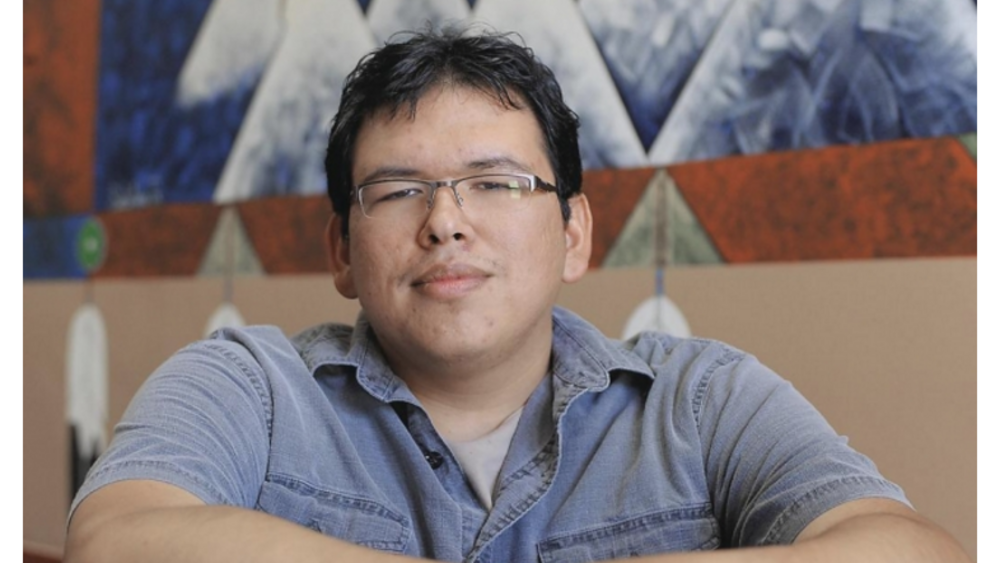
Comanche Nation College Tries to Rescue a Lost Tribal Language
A two-year tribal college in Lawton, Okla., is using technology to reinvigorate the Comanche language before it dies out. Two faculty members from Comanche Nation College and Texas Tech University worked with tribal elders to create a digital archive of what's left of the language. Only about 25…

Youth Council Addresses Serious Problems in Michigan
Sarah Schilling, of the Little Traverse Bay Bands of Odawa Indians, is one of five 2013 Champions for Change chosen by the Center for Native American Youth. The 18-year-old is a recent high school graduate from Charlevoix, Michigan who was inspired by her participation and the youth-based efforts…
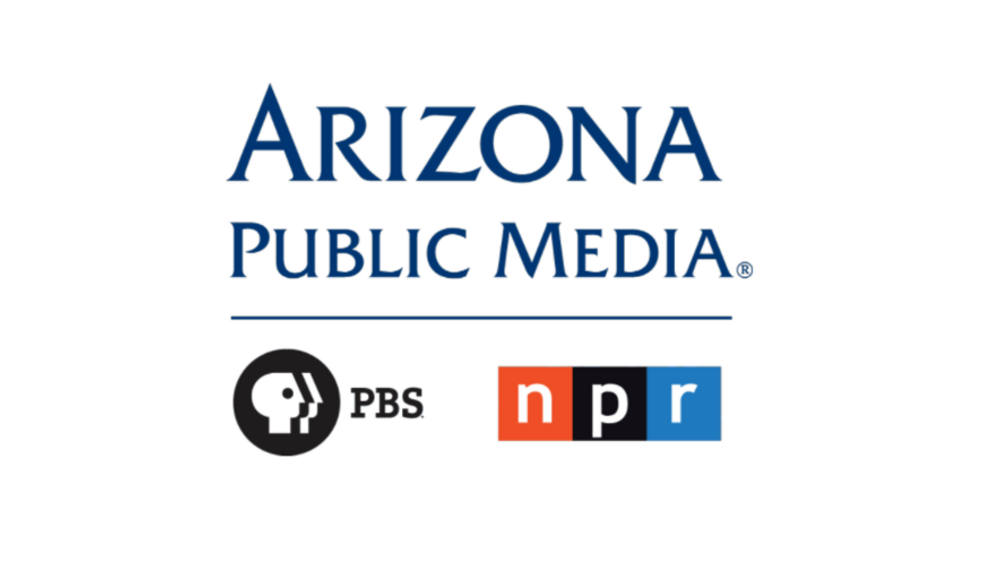
Study Evaluates Young Native Adults' Connection to Tribal Lands
University of Arizona master's student Aurora Trujillo is a member of the Taos Pueblo nation in New Mexico, a full-time resident of Tucson during the school year, and is working at an internship in Montana this summer. She is representative of other young adults who do not live on the tribal…
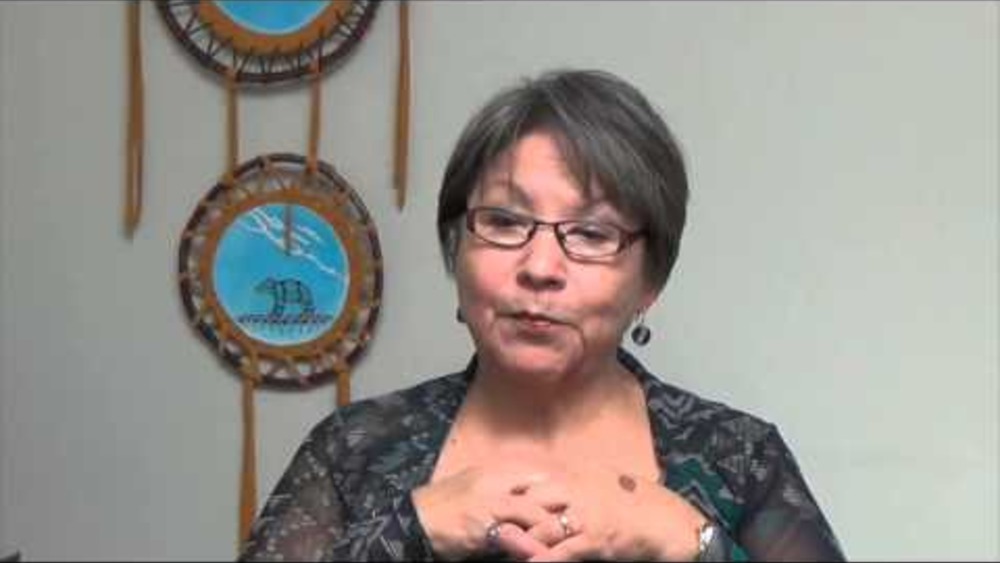
Carol Croxon: Nipissing First Nation's Gichi-Naaknigewin
Nipissing First Nation community member Carol Croxon describes what the Nipissing Gichi-Naaknigewin (Constitution) means to her in this short video explaining the document to the Nipissing people.
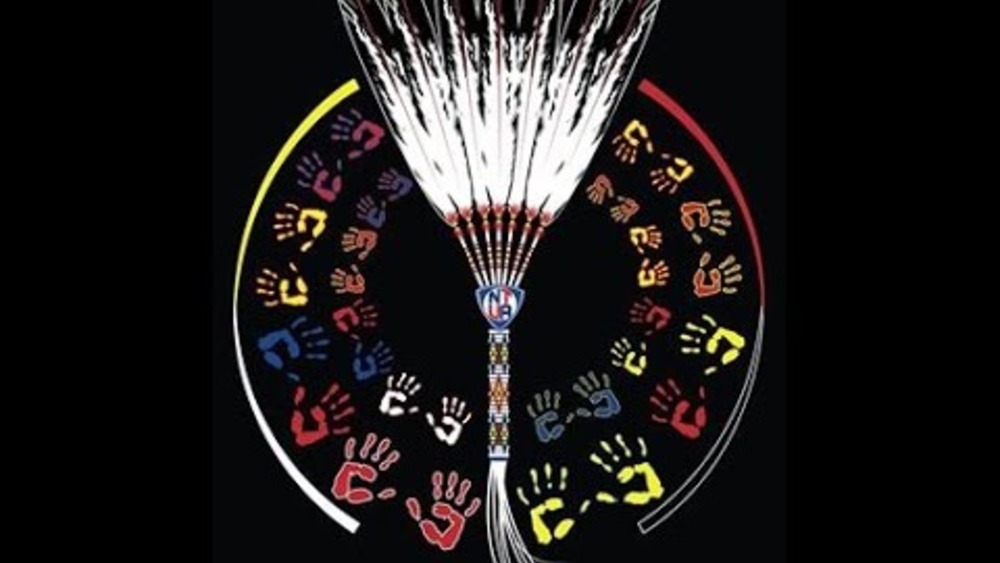
Blackfeet Constitutional Change Class
The summation of all several videos...the complete 6 1/2 hour taping of the discussion of why our current Constitution, Charter, and Plan of Operations have become ineffective for our current times as a people and Piikani Nation for "Blackfeet Government Change" of Joe McKay and Blackfeet Community…
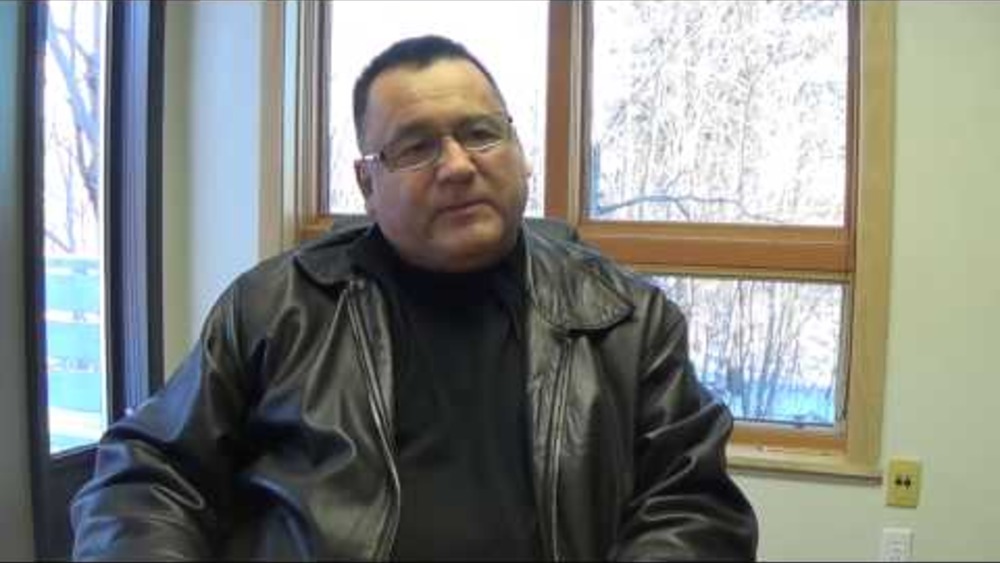
Grand Council Chief Patrick Madahbee: NFN Gichi-Naaknigewin
Anishinabek Nation Grand Council Chief Patrick Wedaseh Madahbee speaks to Nipissing First Nation members about the importance of the Gichi-Naaknigewin (Constitution) and its relationship to community development.
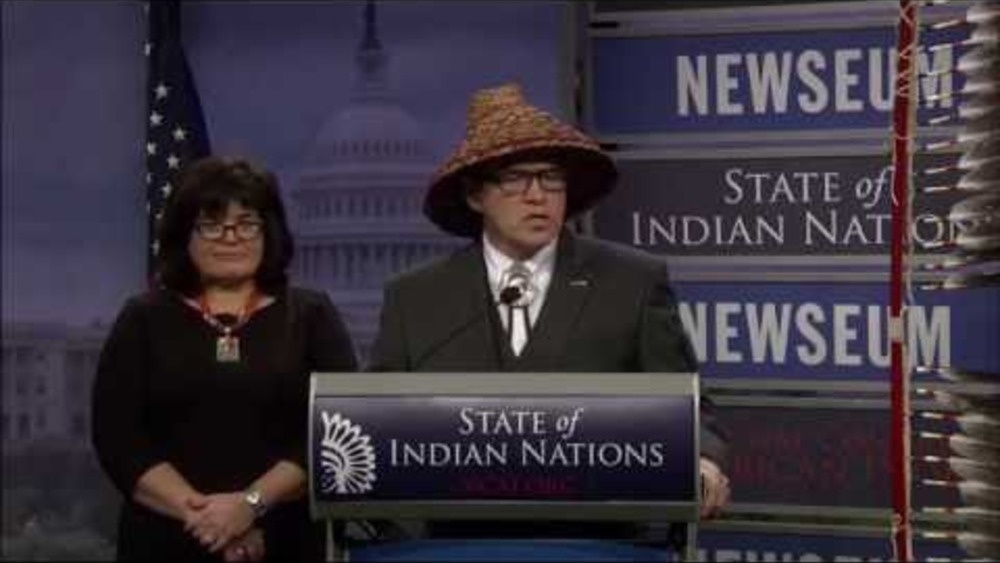
2015 NCAI State of Indian Nations
During the annual State of Indian Nations address, NCAI President Brian Cladoosby, chairman of the Swinomish Nation, called on Congress and the Obama Administration to follow through on a policy action plan to improve economic opportunity, education, and innovation in Indian Country and for the…
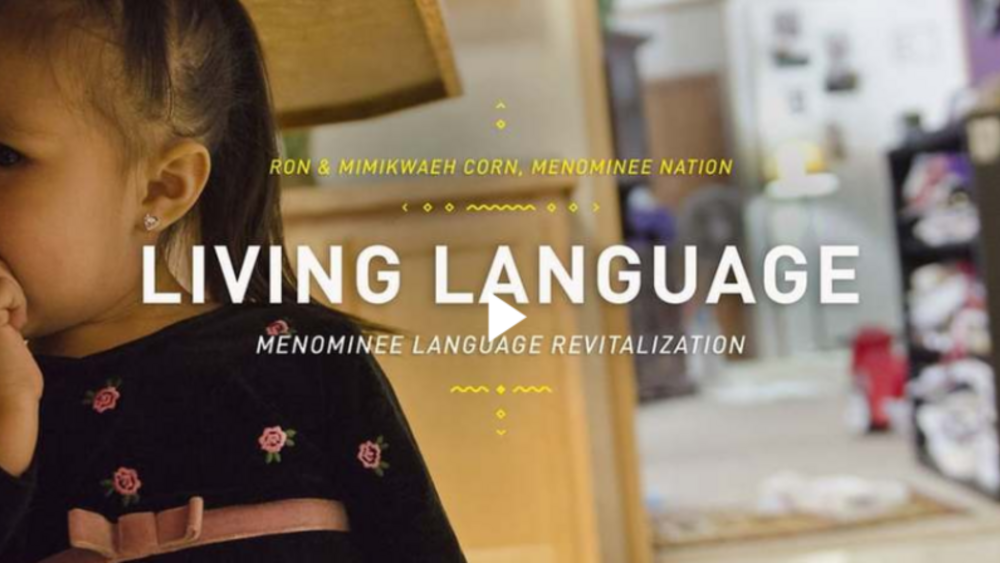
The Ways: Living Language: Menominee Language Revitalization
Before European contact, the Menominee Indian Tribe had a land base of over 10 million acres (in what is now known as Wisconsin and parts of Michigan) and over 2,000 people spoke their language. Today, their land has been reduced to 235,000 acres, due to a series of treaties that eroded the tribe’s…
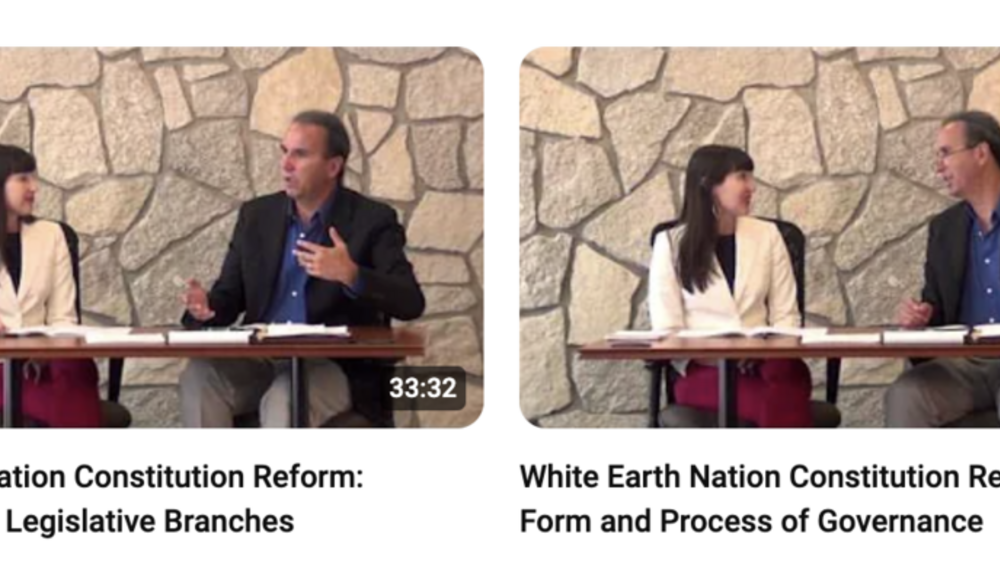
Videos: White Earth Nation Constitutional Reform
As part of its ongoing process of educating the White Earth people and others about White Earth's proposed new constitution, White Earth Nation's Constitutional Education Team produced several videos for White Earth citizens to view in order to gain a better understanding of the key governance…
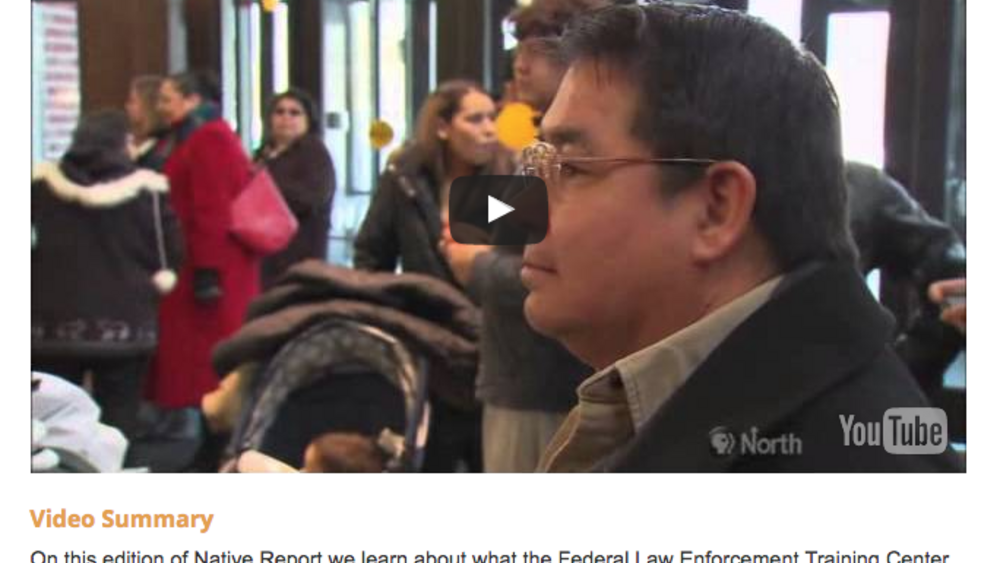
Native Report: Season 6: Episode 7
On this edition of Native Report we learn about what the Federal Law Enforcement Training Center is and why it's important to native people. We travel to the Bois Forte Band of Chippewa to learn about why a State of the Band Address matters to the people of the community and their neighbors; and we…
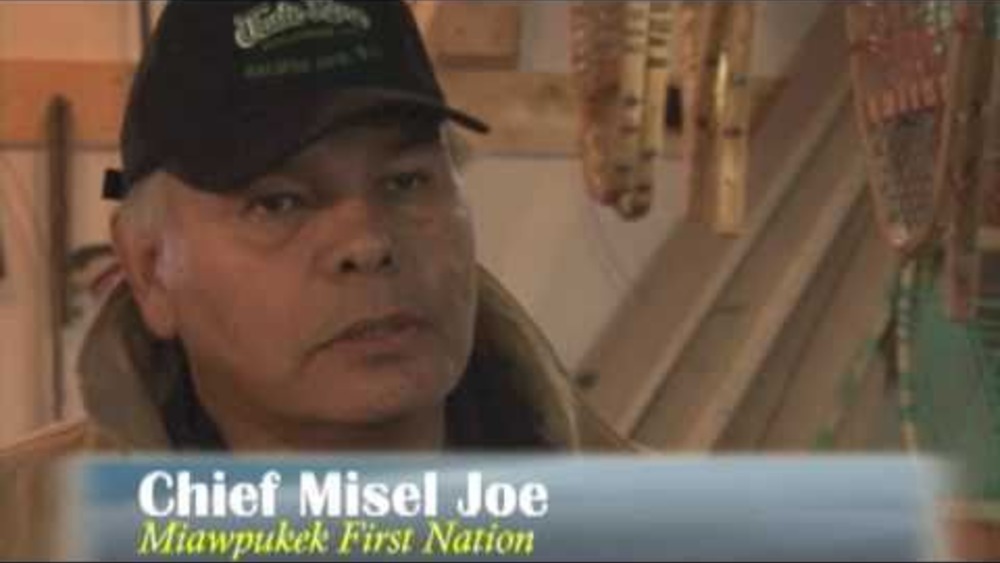
Miawpukek: Success Through Citizen Engagement
"We do have pride in ourselves." Miawpukek citizens talk about the importance of engaging citizens to overcome challenges and build a strong community.
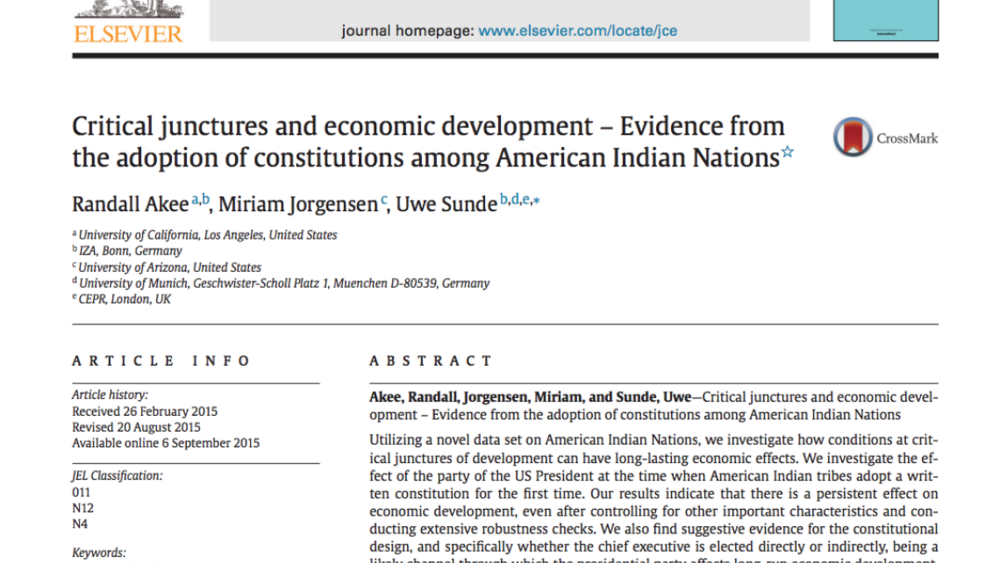
Critical junctures and economic development - evidence from the adoption of constitutions among American Indian nations
Utilizing a novel data set on American Indian Nations, we investigate how conditions at critical junctures of development can have long-lasting economic effects. We investigate the effect of the party of the US President at the time when American Indian tribes adopt a written constitution for the…
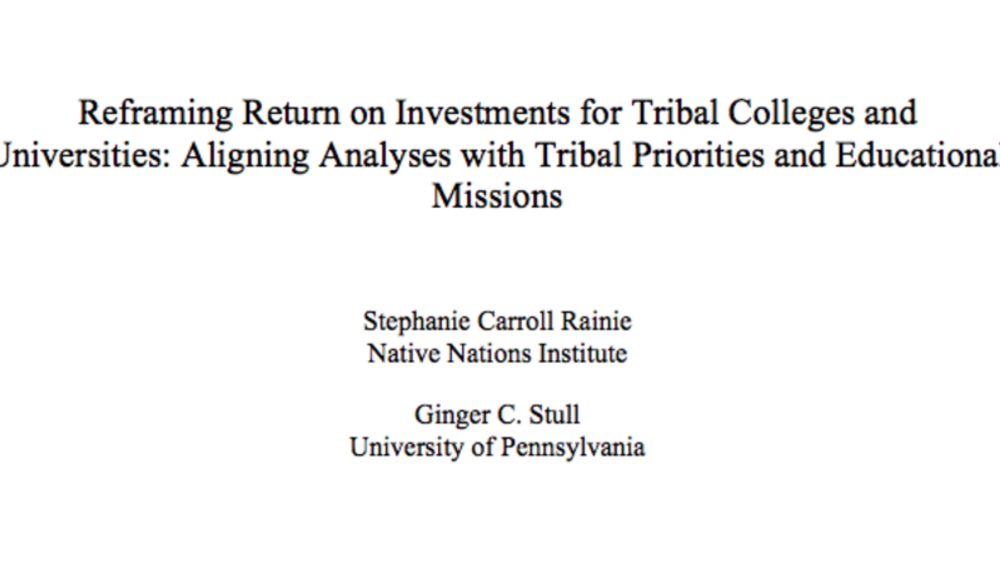
Reframing return on investments for tribal colleges and universities: Aligning analyses with tribal priorities and educational missions
TCUs serve dual missions: educating students and addressing American Indian tribal priorities. Due to this unique status, mainstream ROI metrics fail to fully align with TCU missions. This paper critiques mainstream measures of ROI in the tribal context and provides insights into alternative ROI…
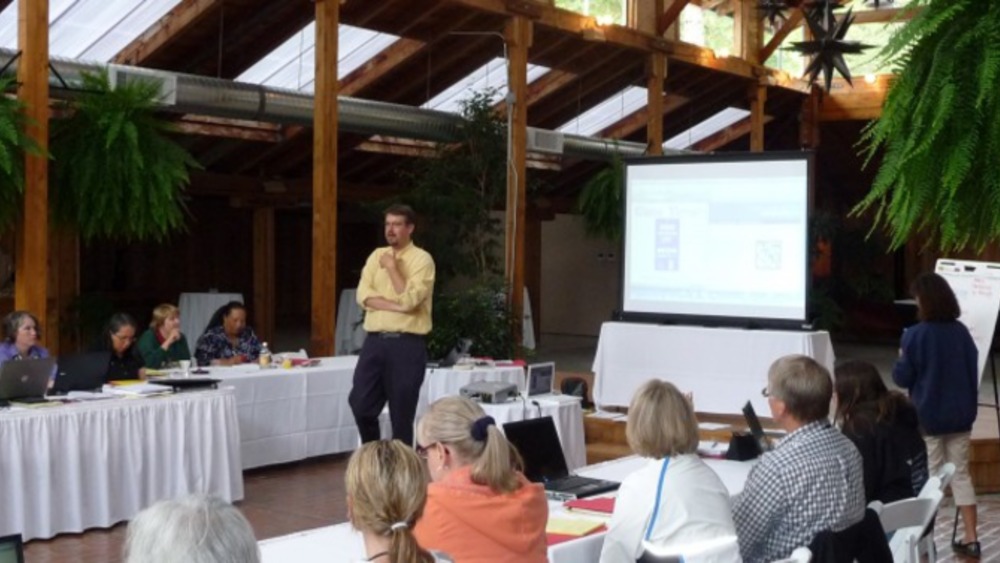
Since Time Immemorial: Tribal Sovereignty in Washington State Curriculum
Welcome to “Since Time Immemorial: Tribal Sovereignty in Washington State,” a ground-breaking curriculum initiative made possible through federal, state, and tribal funding. This project seeks to build lasting educational partnerships between school districts and their local tribes via elementary,…
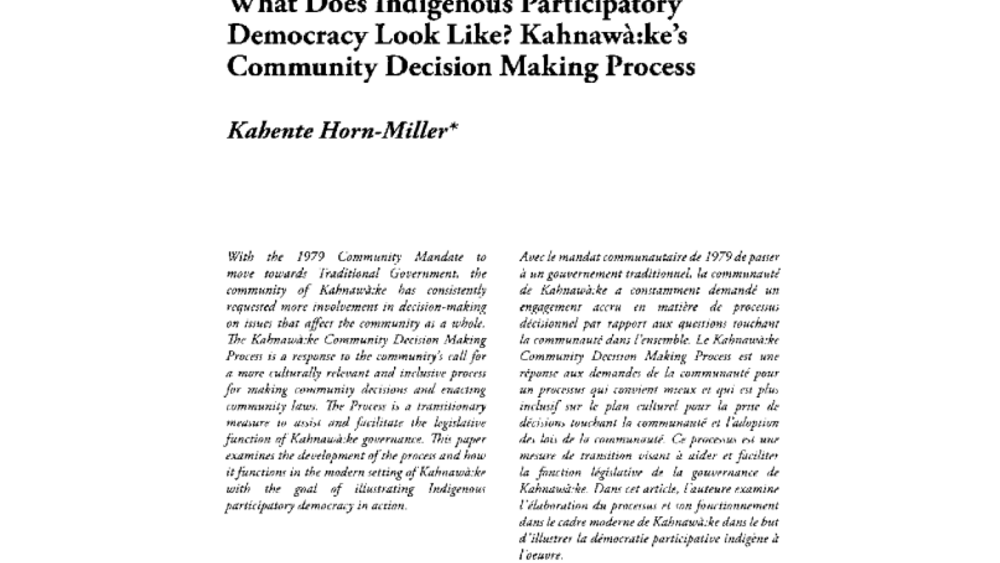
What Does Indigenous Participatory Democracy Look Like? Kahnawà:Ke's Community Decision Making Process
With the 1979 Community Mandate to move towards Traditional Government, the community of Kahnawà:ke has consistently requested more involvement in decision-making on issues that affect the community as a whole. The Kahnawà:ke Community Decision Making Process is a response to the community's call…
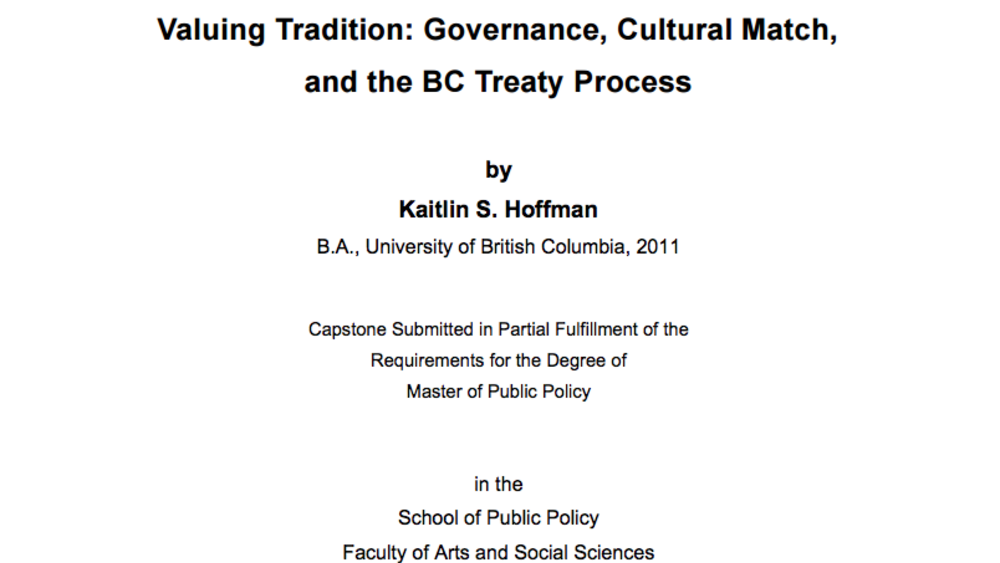
Valuing Tradition: Governance, Cultural Match, and the BC Treaty Process
Self-governance negotiations are an integral part of British Columbia's modern day treaty process. At some treaty tables, impasses have resulted from differences on how to include traditional First Nations governance within treaty. Although some First Nations are determined to pursue traditional…
Pagination
- First page
- …
- 5
- 6
- 7
- …
- Last page
